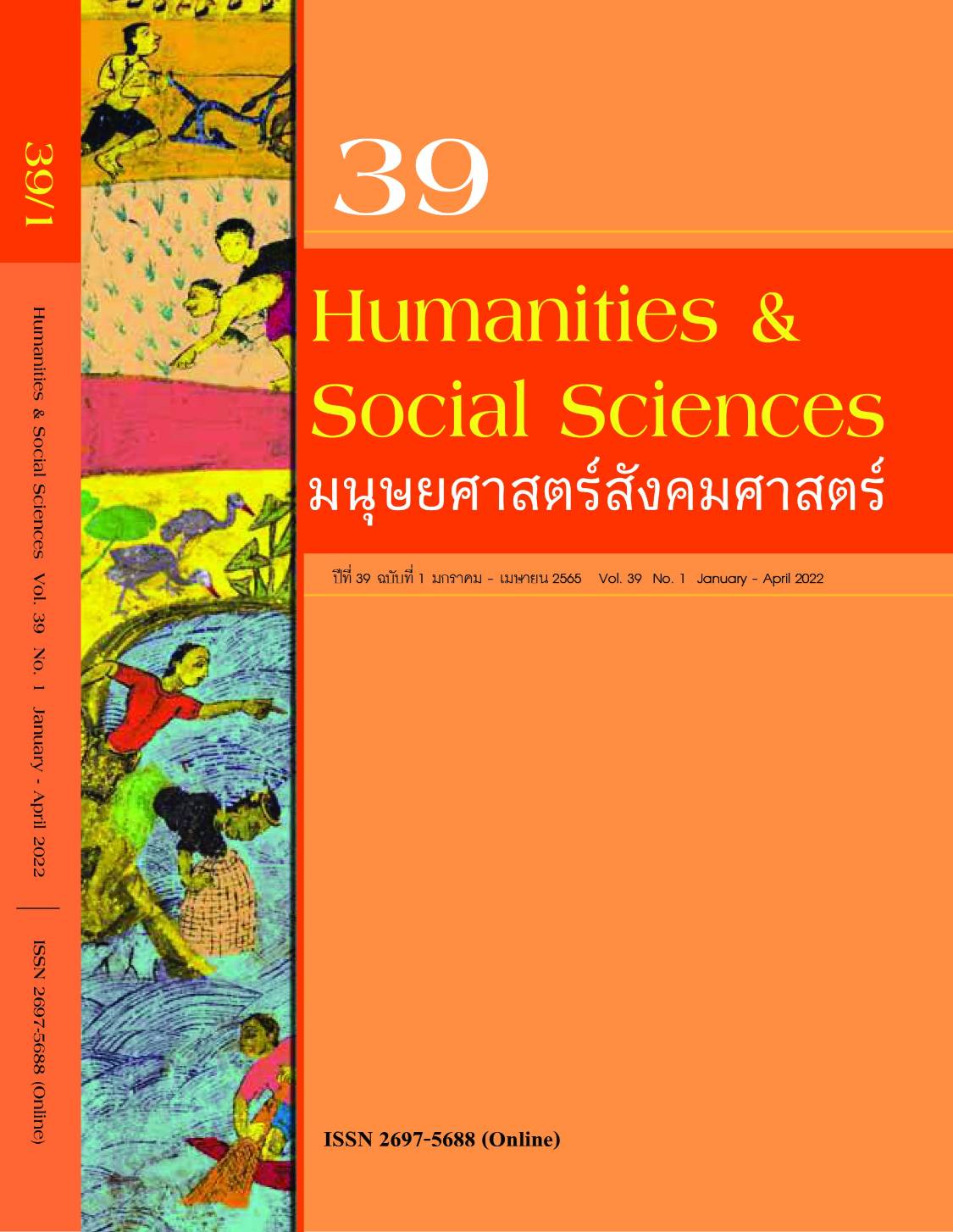พัฒนาการความเชื่อในการดูแลตนเองของหญิงหลังคลอดในชนบทอีสาน
The Development of Belief in Self-Care of Postpartum Women in Isan Rural
Keywords:
patterns of belief, resilience, postpartumAbstract
Abstract
The purpose of this study was to investigate the development of belief in self-care of postpartum women in Isan rural. The data were collected by using an in-depth interview with the target group which was the 10 postpartum women who gave birth in 4 periods; before 1977, in 1977-1991, in 1992-2001, and from 2002 to the present. The content analysis was used as a research tool. The results of the study revealed that before 1977, the belief in self-care of the postpartum women in Isan rural was to rely on herbs, neighbors, and lying by the fire after giving birth because there was no primary health care in rural areas. From 1977 to 1991, primary health care began to take part in the rural which the activity of mother and child sanitation had motivated people to get antenatal care with the government agencies, meanwhile, the birth giving had to still rely on midwives and lying by the fire. Next to 1992-2001, the decade of sanitarium development, there was more understanding about giving birth at the government agencies almost 100 percent. From 2002 to the present, universal coverage was continually used. The belief in self-care of the postpartum women in Isan rural was that almost all of them take the service of government agencies. There were just a little of postpartum women who still believe in lying by the fire, although it has been relayed for a long period.
Keywords: development of belief, self-care, postpartum women
References
โกศล พละกลาง. (2536). ข้อขะลำของชาวอีสาน ศึกษาเฉพาะกรณีกิ่งอำเภอศรีสมเด็จ จังหวัดร้อยเอ็ด. มหาสารคาม : มหาวิทยาลัยศรีนครินทรวิโรฒ มหาสารคาม.
พนิดา กมุทชาติ และคณะ. (2558). การอยู่ไฟของมารดาหลังคลอดตามหลักการแพทย์แผนไทย : กรณีศึกษาชาวไทยอีสานบ้านดงมะไฟ อำเภอสุวรรณคูหา จังหวัดหนองบัวลำภู.
พรทิพย์ เติมวิเศษ. (2551). การส่งเสริมการดูแลหลังคลอดด้วยการแพทย์แผนไทย. ในกันทิมา สิทธิธัญกิจ, อัญชลี จูฑะพุทธิ, มาลา สร้อยสำโรง, จิรัชยา ประมวล, บุษรภรณ์ ธนสีลังกูร และพรทิพย์ ธนะกรศิรวัจน์ (บรรณาธิการ), การดูแลสุขภาพหญิงหลังคลอดด้วยการแพทย์แผนไทย. (พิมพ์ครั้งที่ 2). สำนักพิมพ์กิจการพิมพ์: องค์การสงเคราะห์ทหารผ่านศึก.
พัชรา ปราชญ์เวทย์. (2558). พหุลักษณ์ทางสังคมบนเส้นทางภาษาของชนเผ่าในจังหวัดศรีสะเกษ.วารสารวิชาการ มหาวิทยาลับราชภัฏศรีสะเกษ, 9(1); 143-152.
มณฑิรา เขียวยิ่ง, สร้อย อนุสรณ์ธรีกุล, ประไพพรรณ สุนทรไชยา. (2534) พิธีกรรมการอยู่ไฟ. กระทรวงสาธารณสุข : กรุงเทพฯ. DOI:
วรจักร พรหมา. (2548). ปัจจัยที่มีผลต่อการดูแลตนเองของสตีหลังคลอดที่โรงพยาบาลโนนสูง จังหวัดนครราชสีมา. มหาบัณฑิต สาขาวิชาการจัดการระบบสุขภาพ มหาวิทยาลัยหาสารคาม.
สุธรรม นันทมงคลชัย, ภัทรา สง่า, เรืองศักดิ์ ปิ่นประทีป, ระวีวรรณ ชอุ่มพฤกษ์, อำ ภาพร พัววิไล. ใน: จันทร์เพ็ญ ชูประภาวรรณ (บรรณาธิกรณ์). ประเพณี ความเชื่อ เกี่ยวกับการตั้งครรภ์การคลอดและการปฏิบัติตัวของมารดาหลังคลอดใน 4 พื้นที่ศึกษา 4 ภาคของประเทศไทย : โครงการวิจัยระยะยาวในเด็กไทย. เอกสารรายงานวิชาการโครงการวิจัยระยะยาวในเด็กไทย ระยะที่ 1 ฉบับที่ 12; 2546.
อรวรรณ มะโนธรรม และคณะ. (2557). พฤติกรรมสุขภาพภายหลังคลอดของสตรีลาวในเขตชนบท และปัจจัยที่เกี่ยวข้อง. พยาบาลสาร. (41) 3.
Becker, M.H., & Maiman, L.A. (1975). The health Belief Model: Origins and Correlation in Psychological Theory. Health Education Monography, 2. winter: 336-385.



